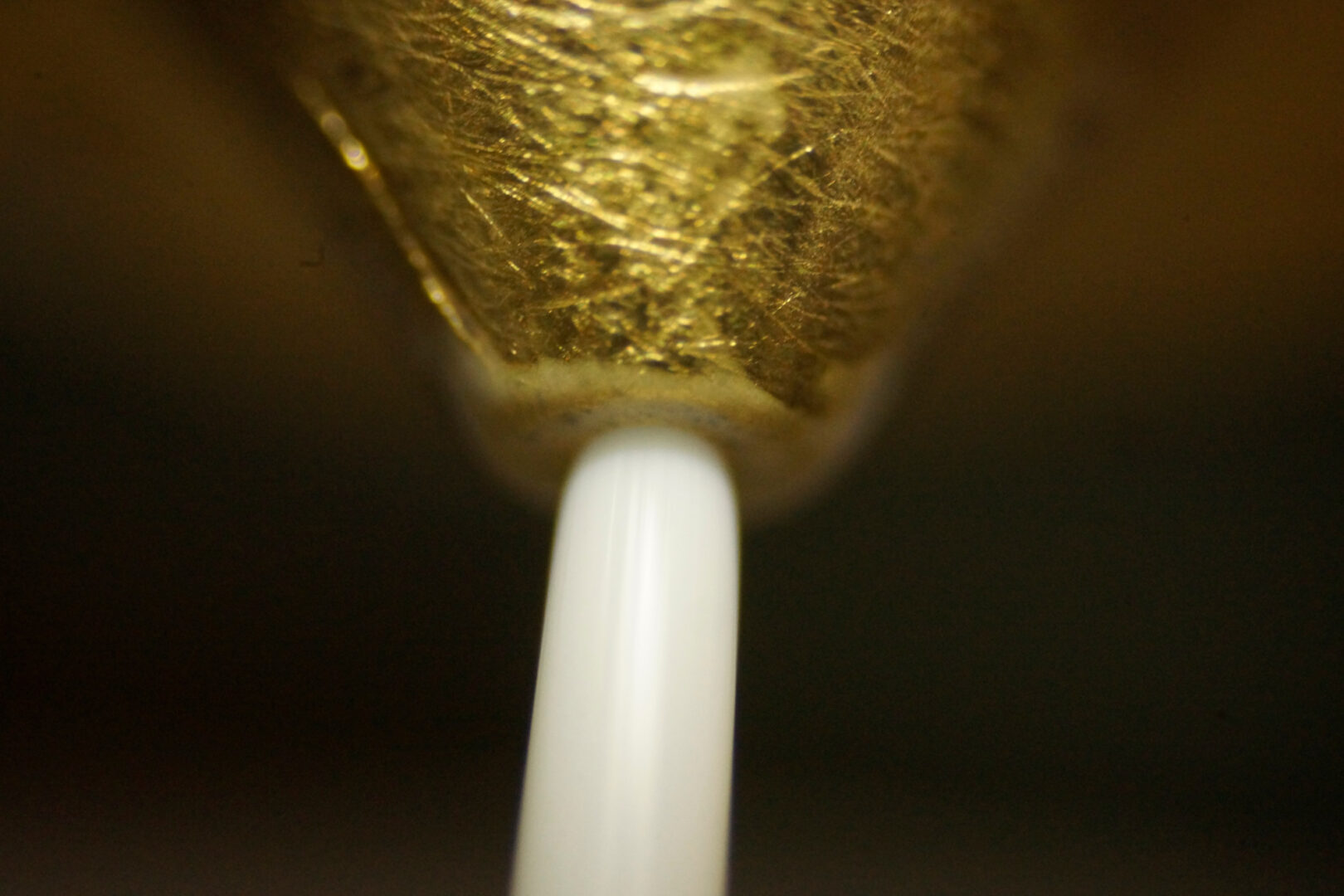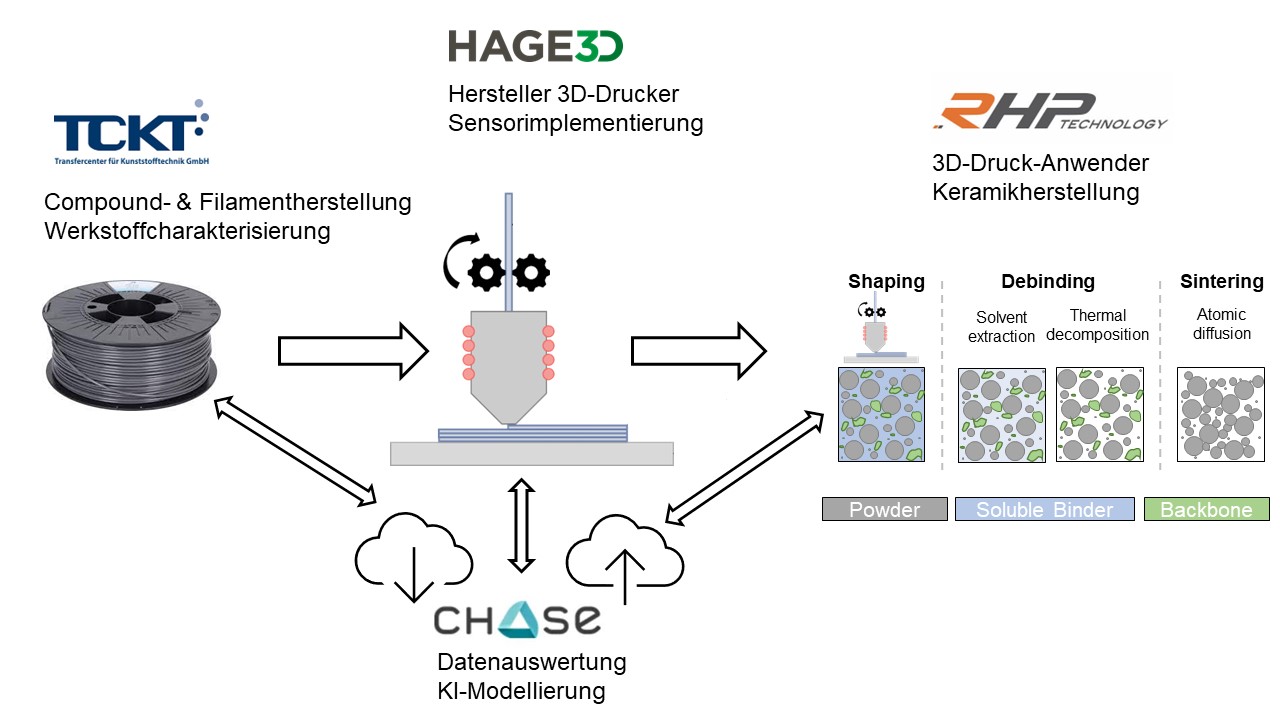
AiProMex
Data-driven inline process monitoring of highly filled polymer systems in filament-based material extrusionThe current market situation in the manufacturing industry is characterised by the need for short product development times and high technical complexity in applications. In addition, the consideration of sustainability aspects and end-of-life scenarios for components play an important role. The integration of flexibility and complexity often poses a challenge for conventional manufacturing processes particularly in terms of cost-effectiveness and competitiveness. Additive manufacturing which is characterised by its inherent independence from component complexity and its versatility offers solutions to this challenge.
In the field of additive manufacturing the fused filament fabrication (FFF) process (also known as material extrusion (MEX)) is the most cost-effective and flexible manufacturing option for producing components. Thermoplastics are used here that are not only recyclable but also permit a wide range of material and surface properties. The current challenge in this process is that quality fluctuations in the input material can lead to porosity in the component. These fluctuations are due to variations in composition and viscosity which are manifested by irregular (or varying) material deposition and under-extrusion. Recording the rheological properties during the process is not currently common practice but could help to counteract this problem.
In the "AiProMex" project a systematic approach to the in-line recording of rheology is being developed consisting of sensory recording and its evaluation using machine learning (soft sensor technology) which should enable process control. In addition, we expect to gain a detailed understanding of the relationships between material, process parameters and product quality, which in turn will allow the (offline) optimisation of the process with regard to material properties. This has a positive effect on the print defect balance and material consumption increases the quality and performance of the components and thus leads to a broader applicability of the technology.
In the project, different materials but primarily ceramic-filled materials are processed and then sintered. This two-stage process is particularly challenging: on the one hand, the sintering process is sensitive to porosities and blowholes in the green parts; these lead to irregular component shrinkage and stress concentrations and thus to mechanical weakening of the component. On the other hand, the production of green compacts from ceramic-filled polymer systems is difficult due to the complex melt flow during extrusion which impairs process stability and controllability.
The development of process monitoring and control on this complex system represents a decisive milestone for the implementation of this flexible fast and economical production method in other areas of application.






